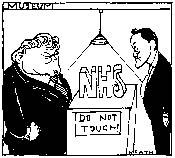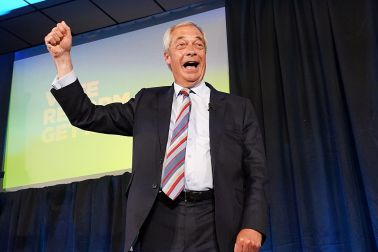A visitor returning to Britain after 30 years could easily be fooled — by the sight of privatised buses and by the replacement of heavy nationalised industries by hi-tech business parks — into thinking that Britain has been transformed from a sub-socialist society into a dynamic free enterprise economy. In some ways that may be true, yet paradoxically the public sector is actually larger relative to the rest of the economy than it was in the dying days of the last Labour government.

Disagree with half of it, enjoy reading all of it
TRY A MONTH FREE
Our magazine articles are for subscribers only. Try a month of Britain’s best writing, absolutely free.
Already a subscriber? Log in







Comments
Join the debate, free for a month
Be part of the conversation with other Spectator readers by getting your first month free.
UNLOCK ACCESS Try a month freeAlready a subscriber? Log in